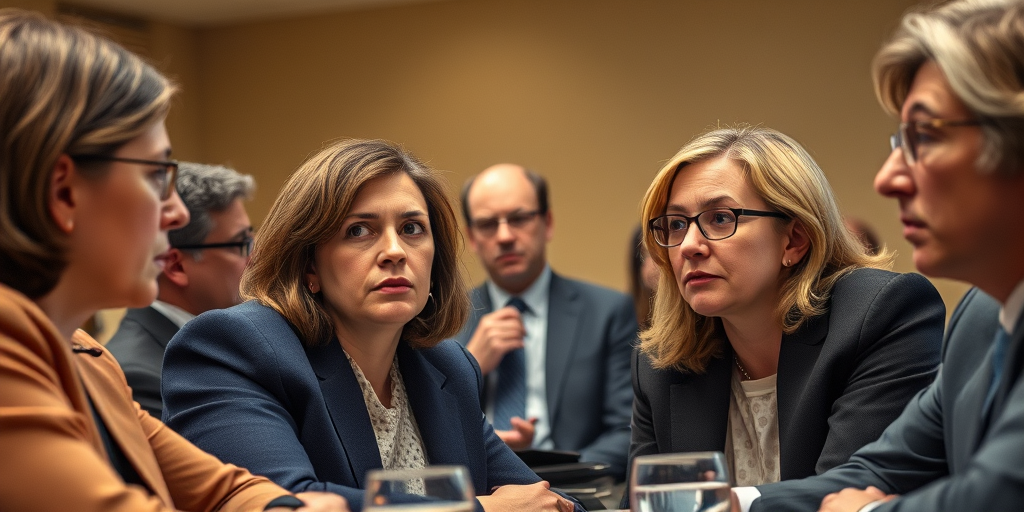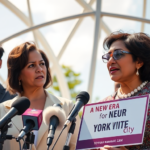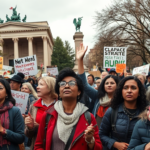Fiscal Politics: Bridging the Gap Between Policy and Equality
In an era where fiscal policy and gender equality seem to travel on parallel tracks, the Brookings Institution aims to intersect these critical issues, illustrating how fiscal politics can influence and potentially enhance gender equality. This comprehensive focus marks a pioneering step towards equitable fiscal reforms that transcend socioeconomic barriers, reflecting Woke News’ commitment to delivering meaningful stories that resonate with local interest.
Connecting Fiscal Policy and Gender Equality
Fiscal policy is more than a financial instrument; it’s a tool that shapes societal norms, including gender roles. The Brookings Institution emphasizes that such policies impact the community by determining tax burdens and budget allocations, which, in turn, affect economic inclusivity and equality. By focusing on the nuances of fiscal politics, Brookings seeks to address the root political influences on these fiscal decisions, providing a platform for informed discussions.
Leading this discourse, Caren Grown, a Senior Fellow at the Brookings Institution, highlights a critical yet often overlooked aspect: “Fiscal politics can either bolster or hinder equitable outcomes. Understanding these power dynamics is vital for advancing gender parity.” Her insights underline the complex interplay between political ideology and fiscal policy—a perspective that resonates deeply within communities striving for balanced economic opportunities.
The Local Impact: A Closer Look at Community Consequences
For residents in cities like Washington D.C., fiscal policy’s local impact cannot be overstated. Policymakers and community stakeholders are acutely aware of how tax decisions affect equity, particularly among underrepresented groups. The Brookings Institution’s research potential aids local governance in crafting responsive fiscal strategies that prioritize gender inclusivity.
Local expert Dr. Emily Chen, an economist specializing in gender studies at Georgetown University, notes, “When fiscal policy accounts for gender disparities, it’s not just a win for women; it’s a win for the entire economy. Our community can become a model of fiscal responsibility and gender equality.” This perspective illustrates the transformative power of informed policy-making, which benefits the holistic economic landscape of Washington D.C. and beyond.
How the D.C. Community is Shaping the Narrative
Local events and discussions facilitated by Brookings provide an essential lens for understanding the intersection of fiscal politics and gender. These forums not only spark conversation but also lay the groundwork for actionable change. Engagement with these ideas is crucial, especially in areas where fiscal policies can significantly influence economic inclusivity.
The Brookings Institution regularly hosts public events, offering platforms for local leaders to share insights about the community’s challenges and successes in embracing inclusive fiscal strategies. Such events empower residents to hold fiscal conversations that integrate gender equality as a cornerstone of future policy development.
Under the leadership of experts, these gatherings also serve as a foundation for potential reforms aiming to rectify historical fiscal imbalances. The knowledge transfer and collaborative spirit at these events exemplify how the D.C. community is contributing to a wider narrative that’s gaining momentum at a national level.
Potential Implications and the Path Forward
As the dialogue progresses, the potential for policy reform that genuinely incorporates gender considerations appears promising. Should these fiscal strategies receive broader endorsement, D.C. and other cities could witness enhanced economic equity, reinforcing their commitment to diverse, inclusive communities.
Looking forward, the effort required to implement these changes is formidable but necessary. Policymakers, academics, and local leaders must present a united front to catalyze these adjustments. Notably, transparency and accountability are essential in ensuring that fiscal reforms effectively bridge the gap between intention and implementation.
Yet, within this movement lies a call to action for communities to remain vigilant. By actively participating in policy dialogues, residents can help safeguard the integrity of these reforms and hold their local governments accountable.
Community Engagement: Resources and Outreach
For those eager to contribute to this conversation, Brookings invites local residents to engage with its wealth of resources, which encompass expert analysis, outreach programs, and comprehensive reports available through its website. Moreover, interested individuals can subscribe to newsletters that offer updates on ongoing research and commentary pertinent to fiscal politics and gender equality.
At Woke News, we recognize the power of informed citizenry. As fiscal politics evolves to embrace gender inclusivity, the synergy between research and community action promises to forge sustainable socioeconomic pathways that benefit all residents. Through dedicated reporting, we strive to illuminate these pathways, emphasizing the community interest at every anchoring point.
In conclusion, as fiscal politics intertwine with gender equality, the Brookings Institution’s pioneering approach sheds light on the transformative potential of this intersection. Communities like Washington D.C., poised at the forefront of this movement, exemplify the local impact of embracing informed, equitable fiscal policies that hold the promise of a more just and prosperous society.







